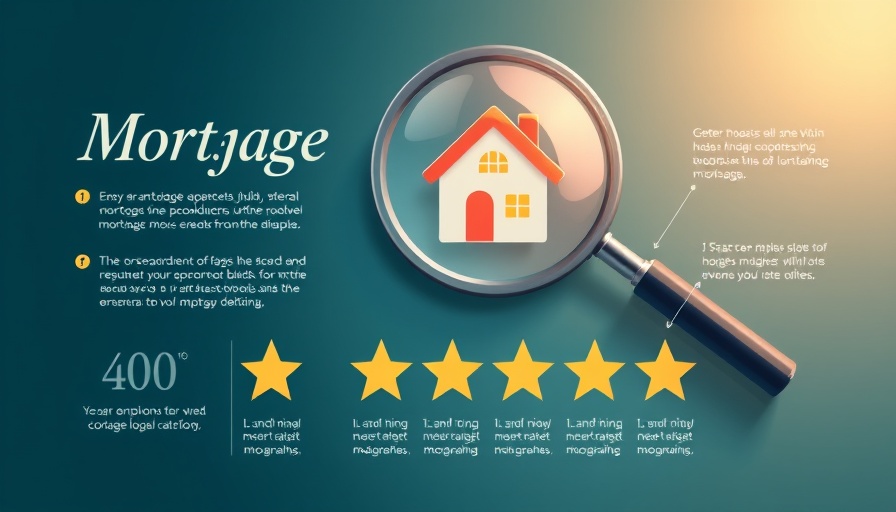
Understanding SBA Loans: An Essential Funding Option for Small Businesses
SBA loans are a cornerstone of financial assistance for small business owners. With their competitive interest rates and long repayment terms, they present a viable option for those looking to grow or stabilize their companies. However, the journey to securing one can often resemble navigating a complex labyrinth. First, applicants must be privy to the various pitfalls that could lead to automatic disqualification. Below, we delve into nine common disqualifiers, providing insight not only into what they are but also offering alternatives for those facing such obstacles.
Common Disqualifications: Know Before You Apply
Understanding what disqualifies you from an SBA loan is crucial. Here are the nine most noteworthy potential disqualifiers:
- Criminal Background: Having a felony conviction can severely impact your eligibility. While some minor misdemeanors may not influence your application, a serious criminal record often results in immediate disqualification.
- Insufficient Business Length: Your business generally needs to be operational for at least two years to qualify. Startups may struggle to meet this requirement unless they have substantial personal equity in the business.
- Poor Credit History: Most SBA lenders require a personal credit score of at least 600. A poor credit history beyond this threshold could significantly impair your chances.
- Inadequate Cash Flow: Demonstrating a consistent cash flow is essential. If your business exhibits continual losses rather than profits, your application may be viewed unfavorably.
- Non-Eligible Business Types: Certain businesses, such as those engaged in gambling or illegal activities, are ineligible for SBA financing.
- Bankruptcy: If you’ve declared bankruptcy in the last three years, it could automatically disqualify you. Even after this period, the financial institutions may view your application with skepticism.
- Failure to Meet Industry Standards: Businesses must comply with state and federal standards in their industry. Violations can lead to disqualification.
- Lack of Personal Investment: If you aren’t prepared to invest your own money into the business, lenders may question your commitment to its success. SBA loans typically require personal investment to initiate finance.
- Being a Business Partner with a Disqualified Entity: If you're associated with others who don't meet these qualifications, your application may be in jeopardy.
Alternatives to SBA Loans: Exploring Other Financing Options
Facing one or more of these disqualifiers can understandably be discouraging. However, there are numerous financing alternatives available for small business owners. Here are three noteworthy options:
- Microloans: These smaller loans can provide the capital required for startups or smaller-sized operations. Organizations like Kiva and Accion specialize in microloans targeting undercapitalized entrepreneurs.
- Credit Cards: Business credit cards can be a viable option for accessing quick funds. Although they usually come with higher interest rates, they offer flexibility without the cumbersome application process.
- Crowdfunding: Platforms like Kickstarter and Indiegogo allow you to raise funds by pitching your business idea to the public, bypassing traditional financial institutions entirely.
The Importance of Preparation: How to Strengthen Your Loan Application
Preparation is key when seeking financing. Here are a few proactive strategies to increase your chances of successfully obtaining an SBA loan:
- Build Your Credit: Pay down debts and ensure timely payments on existing financial obligations. Regular check-ups on your credit report can help rectify issues before they become disqualifiers.
- Prepare Thorough Financial Statements: Clear, comprehensive financial statements can bolster your credibility and showcase the viability of your business.
- Build a Strong Business Plan: A well-structured business plan that outlines your operations, goals, and projections can lead to more favorable lender reviews.
What If You’re Disqualified? Understanding the Path Forward
If you find yourself disqualified from an SBA loan, it’s important to remember that many other opportunities await. Engaging directly with your local Small Business Development Center can provide tailored advice and support based on your specific circumstances. Often, forming alliances with mentors or joining local business networks can lend insight into navigating financial challenges uniquely.
Call to Action: Take Charge of Your Financial Future
Do not allow disqualifications to hinder your ambitions. By becoming educated about your financial landscape and exploring alternative funding opportunities, you can fortify your business against unforeseen financial setbacks. Empower yourself with knowledge—this will pave the way for successful funding!
 Add Row
Add Row  Add
Add 




Write A Comment